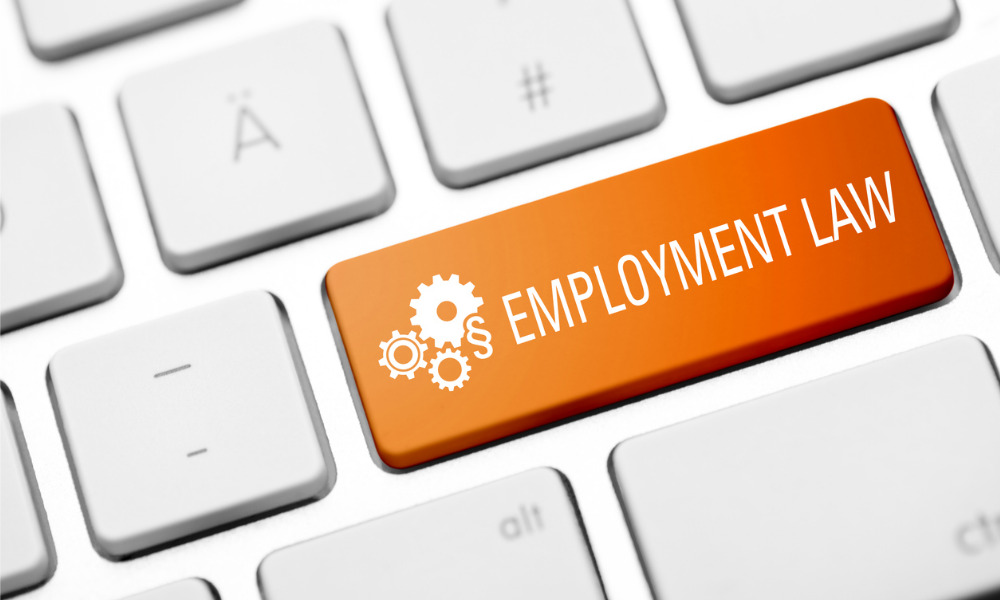
COVID concerns are on the rise – are you aware of the new legislations?

Alongside the ever-evolving legislation around vaccination policies and Work Health & Safety (WHS) measures and compliance, Australian businesses also need to take heed of varying public health orders that’re in place across different states and territories. HRD spoke with Australian Business Lawyers and Advisors (ABLA) director Kyle Scott on the pressing legal issues Australian employers are facing now – and will be looking at in the coming months.
“Issues related to COVID-19 continue to consume a lot of the focus at the moment,” Scott told HRD. “Getting the balance right between managing safety risks, getting operations back to normal, and dealing with a constantly changing regulatory environment is a real challenge. We’re starting to see the flow-on effects from many businesses implementing site entry requirements prohibiting unvaccinated people from entering – as well as complexities around the collection of vaccination records and privacy laws.”
The ‘flow on’ effects occur when a lot of businesses haven’t imposed their own vaccine mandate on the workforce. Essentially, if their employees are required to enter another business site (for example, service technicians) employees may need to be vaccinated in order to perform their work. Government Public Health Orders have been put in place at airports, in quarantine, and across a number of industries including aged care, education, childcare, disability and home care, and some parts of the health care sector.
Businesses are able to self-mandate for employees if they can establish that a requirement for their workers to be vaccinated is a lawful and reasonable direction.
“Whether or not a direction is reasonable involves an assessment of all the facts and circumstances specific to that business,” added Scott. “As such, there’s no hard and fast rules for businesses. Companies considering vaccine mandates should undertake a risk assessment, have a process for dealing with exemptions, and then consult their workers before imposing any mandate. The customer vaccination issue is more straightforward; owners and occupiers of premises can impose entry requirements on customers, including in relation to vaccination status, provided they have a mechanism in place to ensure people with a valid medical exemption are not discriminated against.”
With vaccine mandates, each case has to be considered on their individual circumstances.
“The legal test is whether an employer mandate is reasonable in the circumstances, and so each vaccine mandate will need to be considered in the particular context of that business,” Scott told HRD. “That includes what their workers do, and the specific facts and circumstances applying to that workplace.”
Australia awaits the verdict from the Fair Work Commission on a case involving BHP’s Mount Arthur mine where miners who refused the vaccine, after a mandate was enforced, were stood down without pay. Scott referenced this as a test case on mandates and reasonable and lawful directions regarding future vaccine mandates.
“I think this case will be quite influential in terms of employer vaccine mandates into the future,” he explained. “If BHP fails to uphold the ban on unvaccinated workers entering the site, other businesses will be much more cautious in their approach - and may not have the confidence to impose vaccine mandates. However, on the flipside, if they are successful, I think we will see a lot more employers following their lead.’’
The transition back to the workplace has been a smooth one for most reports Scott, who cites good communication and an individualised approach as key.
“Many employees have been understandably anxious around returning to work, and businesses have had to be receptive to employee concerns and open to making sensible adjustments to ensure people feel comfortable,” he added. “There’s also been some opposition to vaccination policies, but businesses that have been able to communicate a clear and evidence-based rationale for their position have managed well. The key is to engage with concerned individuals and respond to their queries rather than ignoring them.”
‘’Measures vary quite a lot depending on the industry and type of work being performed, but obviously the usual measures like face masks, social distancing, capacity limits, additional hygiene measures, split-team arrangements, etc. are commonplace,” explained Scott. “In some of the high risk sectors, rapid antigen testing may become a standard feature of their risk management programs.”
High risk sectors include - sectors that provide in-person services to vulnerable members of the community such as healthcare services and also sectors where employees have personal contact with members of the public or colleagues and where social distancing is difficult, such as retail checkouts.
New visa changes are set to make it easier for employers to source new talent. Last week the government announced that around 200,000 skilled migrants who stayed in Australia during the pandemic will be eligible for residency – according to The Australian Financial Review.
While Australia has seen a slew of employment law upheavals over the past 12 months, we’re not done just yet. Looking ahead to 2022, Scott warned employers to start looking to their internal contracts – especially when it comes to the gig economy and work rights.
‘’With a federal election on the horizon, 2022 will likely be another turbulent and uncertain year in industrial relations,” he told HRD. “We will start to see the political parties (particularly the ALP) release their IR reform agendas, with a likely focus on secure employment, protections for gig economy and migrant workers, reforms to anti-discrimination and sexual harassment laws. The outcome of next year’s election will influence the extent of legal change over the next few years.’’